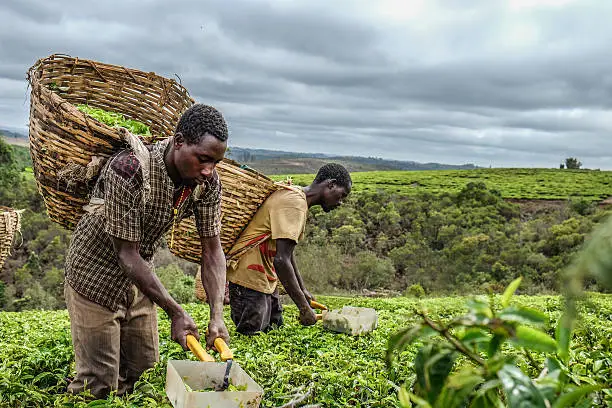Nigeria’s food security challenge is often framed as a story of scarcity—higher costs, fewer plots of fertile land to cultivate crops on, and an unstable supply chain.
In a bid to address this crisis, the Niger State government has offered Lagos State 100,000 hectares of farmland for agricultural development.
The initiative aims to leverage Niger’s vast land and Lagos’s market power, creating a new model of interstate collaboration that could reshape how the country tackles hunger.
By landmass, Lagos is Nigeria’s smallest state despite its teeming population. The urban sprawl leaves little room for large-scale farming, making it reliant on local and foreign imports.
Niger possesses more landmass than any Nigerian state but lacks processing and market infrastructure. The concept of the “Lagos Farm” project seeks to bridge that gap—Niger providing the land and production, with Lagos complementing with logistics, storage, and distribution.
This strategic alliance ensures that farm products can reach the market faster, and surpluses can be shipped for export or processed.
If successful, the strategy could provide a blueprint for other regions across the country.
This partnership comes at a time when food insecurity in Nigeria has reached alarming levels.
A joint report by the Nigerian government and the United Nations projects, released in late 2024, reveals that over 30 million Nigerians faced food insecurity due to economic hardship, high inflation, and supply disruptions
Lagosians have particularly felt the squeeze—the cost of a 50-kilogram bag of rice doubled between 2022 and 2024. Meat is a luxury for many. Lagos intends to stabilise supply by pooling resources with Niger and reducing the price to the end-consumer.
The programme addresses a broader Nigerian thinking about farming — away from subsistence to organized value chains.
Though individual crops like yam, bean, and rice are being focused on, animal husbandry is at the heart as well. Governor Bago argued that the annual Hajj alone requires about five million sheep, each costing roughly 500 riyals per animal.
Bringing Nigerian grazers to that one market could unlock billions of dollars of export earnings if certification and quality are guaranteed. Yet production alone will not guarantee success. Transport costs remain among the steepest barriers.
Abubakar Kyari, Minister of Agriculture and Food Security, recently noted that it often costs more to move a container from Ghana to Lagos than from Lagos to Europe.
Without better storage, roads, and certification systems, even bumper harvests risk rotting before reaching consumers.
Some solutions are already in progress. Lagos has launched a ₦500 billion Offtake Guarantee Fund to stabilise farm incomes and reduce risks for investors.
Farmers are therefore able to plant with assurance that buyers, including state-backed programmes, will purchase their produce at agreed rates.
Niger, meanwhile, is positioning itself as a hub for production and initial processing, with emphasis on crops and livestock that have both local and export value.
Private sectors are also stepping in; the FirstBank of Nigeria took advantage of the Agric & Export Expo 2025 platform to renew its pledge to funding for agribusiness and non-oil exports.
Financial and agri-finance organisations are increasingly viewing agro-based businesses as a pillar of Nigerian economic diversification rather than a risky venture.
If such promises are kept, they would assist in resolving one of Nigeria’s most persistent issues in agriculture — inadequate capital to expand production.
If Lagos and Niger are able to show measurable success—reduced cost of food, assured supply, export-level production—this kind of regional cooperation will inspire other states to follow suit
For instance, northern states with large landmasses can collaborate with cities such as Port Harcourt or Kano or Aba too in similar arrangements, creating a national web of food corridors.
The stakes are, however, high. Agriculture remains one of those industries that have the capacity to create large-scale jobs, stabilise the naira through exports, and reduce the dependence on imports.
In 2022, according to the Nigerian Export Promotion Council, or NEPC, non-oil exports rose by nearly 20%, reaching over $3 billion in the first half of 2025.
To Nigerians, however, what will count will not be export numbers but kitchen economies — whether a family in Surulere can afford rice or whether the Minna market woman is receiving a good price for her beans.
That is where the Lagos–Niger farmland deal must deliver itself, by creating accessibility and affordability as well.
What is emerging in Nigeria’s agro-food system is a realisation that hunger eradication is not a matter of one state achieving this alone; it is a matter of alliances—land with market, production with supply chain infrastructure, and farmer with capital.
Nigeria's food security challenges, usually seen in terms of scarcity, might find a solution through a novel collaboration between Niger State and Lagos. Umar Bago, the Governor of Niger State, has offered Lagos 100,000 hectares of farmland to leverage Niger's extensive land and Lagos's market capabilities. This partnership aims to address Lagos's dependency on imports due to its limited landmass by utilizing Niger's land for production while Lagos handles logistics and distribution. This could become a model for inter-state cooperation, potentially reshaping Nigeria's approach to tackling hunger.
With over 30 million Nigerians facing food insecurity, the collaboration is timely. It seeks to move away from subsistence farming towards organized value chains to stabilize prices and ensure supply. However, for lasting success, challenges like high transport costs and inadequate storage must be addressed. Lagos has introduced a ₦500 billion Offtake Guarantee Fund to stabilize farm incomes, and Niger is emphasizing becoming a production hub with local and export value.
Private sector involvement, like FirstBank of Nigeria's funding pledges, highlights a growing view of agriculture as a key to economic diversification. If successful, this collaboration could reduce food costs and assure supplies, serving as a blueprint for other state collaborations. The stakes are high, as agriculture has potential for job creation, export stabilization, and import reduction, crucial in improving household economies and accessibility to affordable food.






